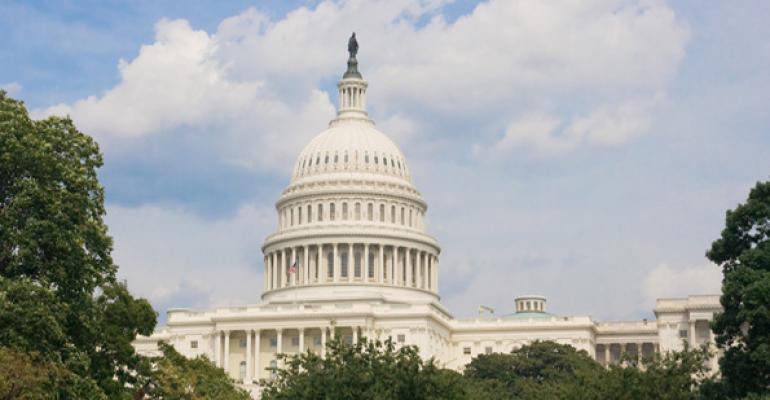We’re finally going to see what happens after the federal Terrorism Risk Insurance Act (TRIA) expires January 1.
“A large number of commercial real estate projects around the country will now fail to get financing, leading to cancellations, job losses and lost tax revenue at the local level,” says Jeffrey DeBoer, president and CEO of The Real Estate Roundtable. “This credit issue will only increase in time as more transactions come to market.”
For the last year, real estate experts like DeBoer warned of calamity if Congress failed to renew TRIA, which provides a federal backstop to property insurance plans that cover damages from terrorist attacks. Without the backstop, insurance companies have been unwilling to take on hundreds of billions of dollars in risk from a potential terror attack. An overwhelming majority of lawmakers in Congress agree that TRIA should be renewed, but other priorities continue to get in the way.
Real estate experts at some bond rating agencies give Congress just a little more time to get its affairs in order.
"We expect TRIA to be a focal point for Congress beginning January 6, 2015. However, if a resolution does not occur during first quarter 2015, insurers may formulate more aggressive contingency plans," said Standard & Poor's credit analyst Tracy Dolin in a report titled “Ratings On U.S. Insurers Are Intact Without TRIA: At Least In The Short Term.”
So far, real estate markets have breezed past worries over TRIA, as investors continue to buy and develop new properties. In prime U.S. cities like Boston and New York, which have experienced terror attacks in the past, prices on properties remain high and cap rates are near all-time lows.
Investors seem to assume that Congress will eventually renew the program, even though TRIA’s expiration has already been causing headaches because insurance policies usually last a year. On January 1, 2014, it became impossible to write a new one-year policy without running into the expiration of the backstop, so that insurers became less willing to provide coverage.
In January, uncertainty over terrorism insurance might spread into the real estate financing markets. Many property owners might be driven into technical default on their loans because loan documents typically require terrorism insurance that they will no longer have. Developers may also be unable to finance new projects, because most lenders require terrorism insurance on their loan collateral.
Ratings agency Fitch warns that it may start downgrading loans before the end of January if Congress fails to extend the law. Fitch has reportedly already identified 20 single-borrower and large loan transactions that it is most likely to place on rating watch “negative.”
Why Congress failed
The insurance program seemed to have cleared the obstacles to renewal. Democrats and Republicans agreed to renew TRIA for six years and raise the amount of terrorism damages required to trigger the program from $100 to $200 million. This proposal passed through the House with an overwhelming 417-to-7 majority. The Senate seemed ready to pass this version of TRIA renewal. “Senators from Ted Cruz to Bernie Sanders supported the bill,” says Sen. Chuck Schumer in editorial in the New York Daily News.
Congress failed anyway. That’s because the bill to extend the program also included a totally unrelated proposal that would create a federal registry to license insurance agents and brokers. Sen. Tom Coburn (R-Okla.) opposed the form of the registry, so he opposed the bill. There wasn’t time left on the Senate calendar to overcome the objection of the lone senator. “It’s unfortunate, but his objection is going to kill TRIA,” said Senate Majority Leader Harry Reid (D-NV).
Lawmakers have pledged to renew TRIA in 2015.
“From the very first day of the new Congress, I will be pushing the Senate to again pass our TRIA deal and reauthorize the program,” says Schumer.
The danger is that other priorities might continue to occupy lawmakers ahead of TRIA renewal.
This isn’t the first time Congress has delayed TRIA’s renewal. In 2007, the backstop came within a few days of expiration before it passed a seven-year extension. That meant that for more than 11 months, insurance policies were written for buildings with exclusions for terror attacks.

